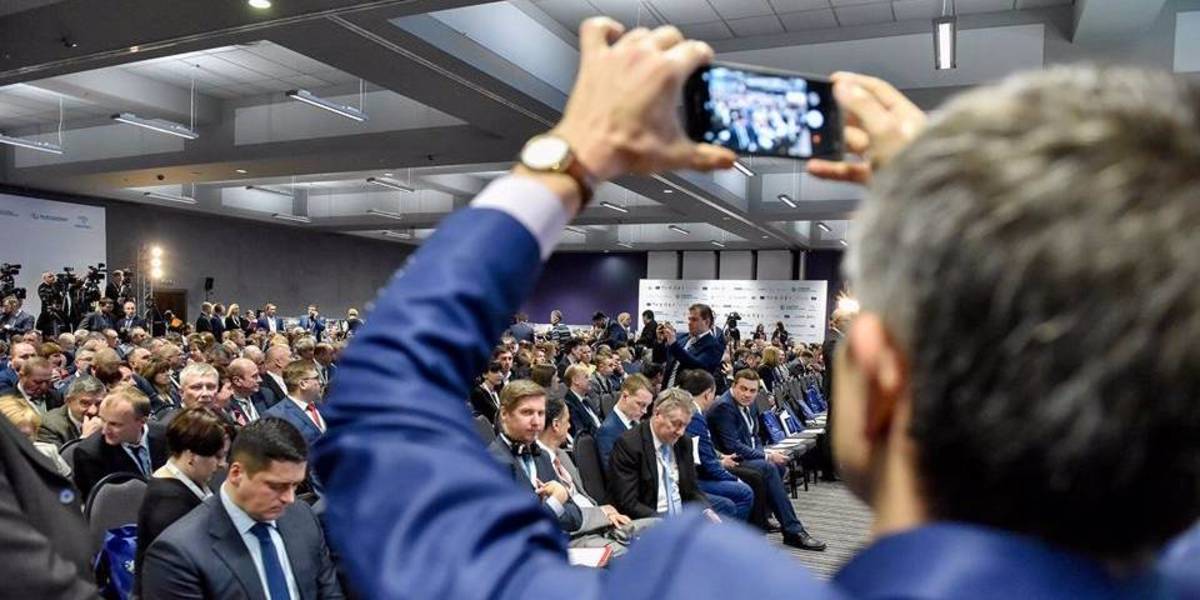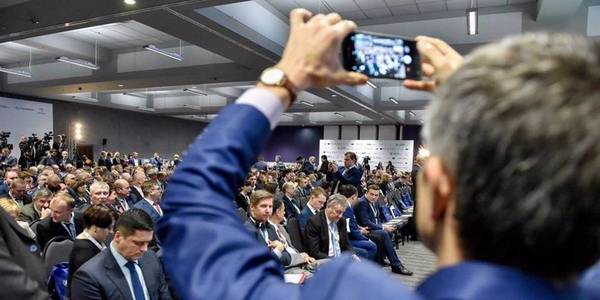How European Ukraine is being sewn of amalgamated hromadas
The 2nd All-Ukrainian Forum of Amalgamated Hromadas, opened by the President, Prime Minister and Head of the Parliament, was held in Kyiv.
“Who among you believed that we would go so far in the reform of power decentralisation? Though everything that happened to the country is not accidental. It is the result of a verified strategy, with compelling qualitative and quantitative changes.” President of Ukraine Petro Poroshenko began his speech with these words at the 2nd All-Ukrainian Forum of Amalgamated Hromadas, held yesterday in the capital.
“One of the decentralisation tasks is to bring the government closer to common people,” said Petro Poroshenko. “Decentralisation allowed doing what was not done for decades: building and renovating kindergartens, roads, etc. throughout the country. Moreover, there is no need to ask for permission in Kyiv, and no need to go to Kyiv with a sack ... I have no doubt that we have overcome the worst, and everything will be fine.”
The President’s announcement that from 1 January local budgets will receive 5% of the tax on subsoil use caused a storm of applause. In general, UAH 18,5 billion are envisaged for local self-government in the draft budget for the next year.
“I remember how the decentralisation process began in Ukraine,” continued Andriy Parubiy. “It was just after the Maydan Revolution, when the president and the prime minister escaped from Ukraine, and the enemy stepped on our land. Then we realised that Ukraine’s main force is in its citizens. The path of decentralisation was an asymmetrical response to the aggressor. In fact, the process of capable hromadas’ formation was a kind of sewing of the Ukrainian space. Decentralisation has become a new Magdeburg Law for Ukrainian amalgamated hromadas. And these hromadas have become the main investors in local infrastructure and business development.”
The Speaker of Parliament also stressed that, in order to accomplish the reform the Parliament should take several important steps, and listed several draft laws to be adopted in the nearest future.
“By developing strong, self-sufficient, efficient AHs, we are creating a European Ukraine,” finished his speech Andriy Parubiy.
“We can state that the first stage of the reform has passed,” Volodymyr Groysman summed up in his speech. “The changes that have occurred as a result of the reform allowed us to build a fundamentally different model of the state, based on the initiative of people. Next, we need to create a perfect regulatory framework so that all powers are at the local level, according to subsidiarity principle. We need to eliminate overlapping of functions of rayon councils, rayon administrations and AHs. In the areas with several amalgamated hromadas, these hromadas have to carry out constant and widespread management.”
Volodymyr Groysman also proposed to sign a memorandum with a “completely precise action plan” among all parties involved in the reform.
Hugues Mingarelli, Head of the EU Delegation to Ukraine, made a proposal not to reduce revenues to the State Fund for Regional Development. He also stated that further economic development of Ukraine will depend a lot on the course of the reform of power decentralisation.
Holger Tausch, director of the Swiss Cooperation Office in Ukraine, co-chair of the Donor Board, called the reform of local self-government and administrative-territorial system one of the most successful reforms implemented by the Ukrainian government.
We see that local authorities wisely use the resources and powers they received, improve the quality of services on the ground and local infrastructure,” he said. “Therefore, I am proud that Ukraine has started and proceeds with implementation of this reform.”
Hennadii Zubko, Vice Prime Minister – Minister of Regional Development, in his turn, emphasised that success of the reform is measured not by the number of opened Administrative Service Centres and kindergartens, but by improvement of the quality of life of Ukrainians. Hennadii Zubko also noted that from 01 January all 665 AHs will have direct interbudgetary relations with the government. A few dozens of AHs are waiting for the decision of the Central Electoral Commission.”
During his speech, people’s deputy of Ukraine Maksym Burbak, opposed the accumulation of AH money on deposit accounts, and emphasised instead that only voters have a real influence on the heads and deputy corps of amalgamated hromadas.
“No rayon council and administration, no local princes will have anything to do with AHs. Let them not cry for power that leaks away,” said Maksym Burbak.
Mr Bourbak also emphasised the inadmissibility of the reform political coloring and drew attention to the temporary lack of control over local self-government decisions: a supervisory function was withdrawn from the prosecutor’s office, and there has not appeared an institute of prefects. Summarising his speech, Maksym Burbak urged the heads of hromadas to communicate more with their majoritarian deputies, and local government deputies to support hromada leaders so that political confrontation did not slow down the work.
In general, the Forum consisted of four sessions. The first session covered discussions on territory development tools, the second one was devoted to the formation of investment climate and investment attraction. The third session was a panel discussion on the topic of “AH development: promotion of the development of small and medium-sized businesses in hromadas, productive potential of the amalgamated hromadas.” The fourth session covered the issues of spatial planning of AH territories and strategies for their development.”

12 February 2026
Анонс: вебінар «Особливості проведення...
Запрошуємо керівників органів управління освітою, управлінські команди закладів освіти та юристів органів місцевого...
12 February 2026
Уряд затвердив Порядок та умови надання субвенції на модернізацію шкільних їдалень у 2026 році
Уряд затвердив Порядок та умови надання...
Кабінет Міністрів України затвердив постанову «Про внесення змін до Порядку та умов надання субвенції з державного...
12 February 2026
3 млрд грн на освітні простори в школах — рішення Уряду
3 млрд грн на освітні простори в школах —...
абінет Міністрів України затвердив Порядок та умови надання субвенції для оновлення освітніх просторів у школах у...
12 February 2026
Уряд запровадив оцінку результативності інвестиційних проектів
Уряд запровадив оцінку результативності...
Кабінет Міністрів України затвердив Порядок оцінки результативності публічних інвестиційних проєктів після їх...
